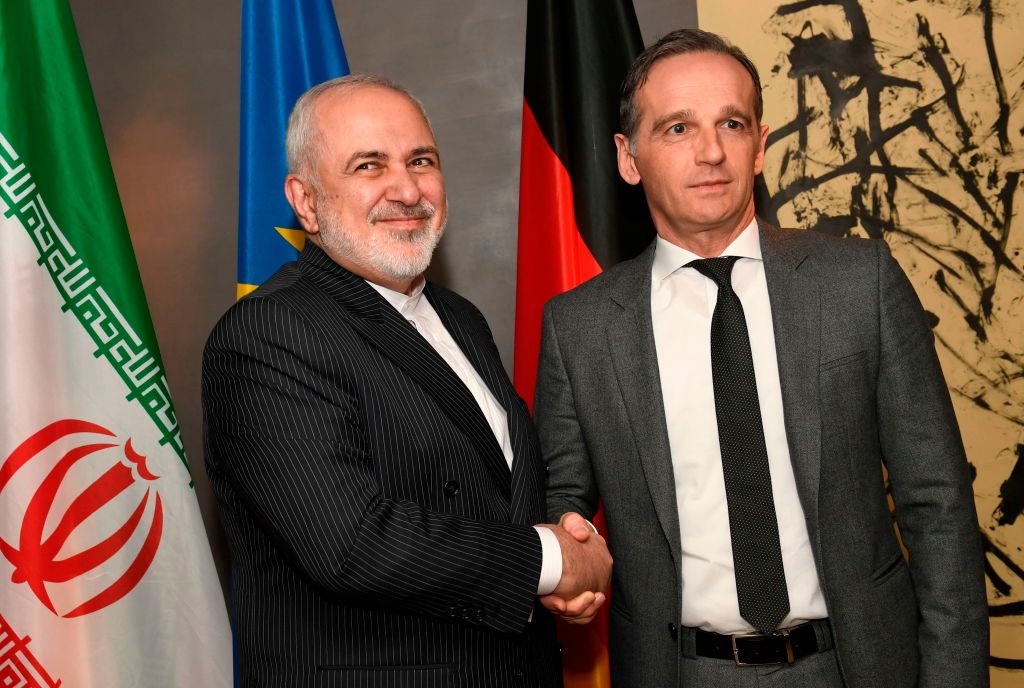In this mailing:
- Petra Heldt: International Outrage Over Denmark's Fake Bible: Time to Discard It
- Majid Rafizadeh: Germany Allows Mullahs' Terror Banks Amid Coronavirus
by Petra Heldt • May 4, 2020 at 5:00 am
This misleads the reader twice. Once, the Danish Bible Society statement dodges the truthful assessment that the word "Israel" was omitted or replaced in the Hebrew Bible in 9% of its occurrences and in the New Testament nearly completely. By omitting any distinction between the two parts of the Bible the statement claims that it mentions "Israel" scores and scores of times in the translation. Second, the statement inflates the word "Israel" with "Israelites." Again here, the analysis of the critique has been side-stepped. The accusation has not been against the replacement of "Israel and the Israelites," but against the replacement of "Israel."
The word "Israel" has an extended history of three thousand years, the word "Israelites" of less than one thousand years. These two words are of unequal measure and had not been joined together in the critique.
After a spectacular denial of the crime of which the Danish Bible Society has been accused internationally, it finally admits to it. But it does not sound like repentance.... While any translation has to wrestle with the transportation of meaning and culture of a text from one language to another, the extraordinary decision of the Danish Bible Society staff to deprive their readers of some of the key points of the Christian faith is mind-boggling.
Above all, the Danish Bible Society separates Israel from its Land. Apart from other key issues of the faith, it denies the reader the knowledge of the intrinsic connection between the Hebrew Bible and the New Testament, and between Israel and its Land. It falls in the trap of which the Apostle Paul warned, "It is not you that support the root, but the root that supports you" (Romans 11: 18). Its version of the Bible robs the Christian faith of its Jewish roots. It presents a new story of the Christian faith. Its maker is the Danish Bible Society.
No one seems to be in the know about this translation of the Bible. Is it possible that the superfluous mistranslation of the Bible was an initiative of the General Secretary of the Danish Bible Society, Birgitte Stoklund Larsen? Did her office raise the money? Where from? Who is profits from this initiative? If not her, who then?
For Christians and Jews, the Bible is serious. Any tampering with its words, above all with the word Israel, is unacceptable and rejected unequivocally. The attempted murder of Israel, from time eternal until our day, is too real to let people play, whimsically, with its land, its people or its name.

The misrepresentation of Holy Scripture by the Danish Bible Society has been met with a crescendo of international protest demanding the withdrawal of the falsified Bible. Pictured: A Bible on the altar of a village church in Denmark. (Image source: iStock)
The misrepresentation of Holy Scripture by the Danish Bible Society (DBS) has been met with a crescendo of international protest demanding the withdrawal of the falsified Bible.
The March 2020 Danish Bible, for the secular Danish reader's easy reading, has omitted or replaced the word "Israel" in all but two places of the more than 60 Greek occurrences in the New Testament and in 9% of the Hebrew Bible.
Protests started on April 21 with the Danish author Jan Frost, who, in a video, first revealed the changes and took the Danish Society to task for them.
On April 26, the Bible Society of Israel (BSI) issued a gracious but unambiguous statement asking to "take measures to correct" the translation:
by Majid Rafizadeh • May 4, 2020 at 4:00 am
"Germany was again Europe's largest trading partner with Iran by far, exporting $1.64 billion worth of goods in 2019. While German banks have been largely reluctant to finance Iran trade, there are at least five banks – all owned/operated by Iran and all operating inside Germany – that are more than happy to step in." – Daniel Roth, "Germany's Iran Banks," United Against Nuclear Iran April 7, 2020
One of the sanctioned banks freely doing business in Hamburg, Germany, is Bank Melli. It is the largest bank owned by the Iranian regime, and when it comes to revenues, it ranks first, followed by bank Mellat.
Another major Iranian bank also still conducting business in Hamburg Germany is Bank Sepah. Bank Sepah, also owned by the Iranian regime, has been sanctioned by the US Treasury Department and has links to the regime's ballistic missile program. According to United Against Nuclear Iran, "Bank Sepah has provided 'direct and extensive financial services' to Iran's key ballistic missiles procurement and development agencies, including Aerospace Industries Organization (AIO) and its subsidiary, Shahid Hemmat Industrial Group (SHIG)."
By trading with the Iranian regime and allowing Iran's sanctioned banks freely to operate in Germany, Chancellor Angela Merkel's government is empowering the ruling mullahs and their regime. They are not only the world's leading state sponsor of terrorism; they are also racing to develop clandestine nuclear weapons and the missiles to deliver them.

German Foreign Minister Heiko Maas (right) shakes hands with Iran's Foreign Minister Mohammad Javad Zarif in Munich on February 15, 2020. (Photo by Thomas Kienzle/POOL/AFP via Getty Images)
While the attention of the international community has been directed towards the battle against the coronavirus pandemic, German Chancellor Angela Merkel's government appears to be allowing Iran's sanctioned banks to operate freely in Germany.
According to a recent report published by United Against Nuclear Iran:
"Siemens, Volkswagen and the big multinationals have pulled back due to U.S. sanctions, but many of Germany's 3.5 million small-and-medium enterprises (SMEs) are still prepared to do business with Iran. And they still can. From Hamburg in the north to Munich in the south, the 'Mittelstand' firms can obtain Letters of Credit, bank guarantees, insurance and all the other trade finance products they need from their Iranian facilitators. "
|
|
|
No comments:
Post a Comment